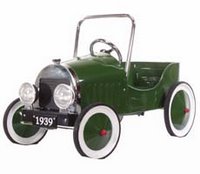
If you read anything emanating from council planners, or from the popular and well-written Auckland Transport Blog, you’d think great cities could only be built around pubic transport.
Not so.
One reason people move to great cities like Auckland in such numbers is in search of a better life, a leg up. And it turns out from two recent studies that “that improving access to cars may be the best way to help the poor.”
[T]wo recent studies show that cars offer more than just convenience: they can give lower income Americans an economic leg up…
[C]ar owners were twice as likely as transit users to find jobs and four times likelier to retain them. Car-owning households were also able to locate near better neighbourhoods and schools. This reaffirmed previous work by the Progressive Policy Institute arguing that car ownership plants the seeds for upward mobility.
Of course, these ideas can be challenging to urban planners, who cling to the default assumption that cities must improve mass transit to reduce poverty. If existing services remain inadequate, then planners use it as an argument for more funding. But what if some of the money went instead towards increasing automobile access? Would that not better help economic conditions for the poor?
The idea was considered recently by one of the Urban Institute study’s authors, Rolf Pendall. He claimed that any serious conversation about poverty must include the issue of automobile access. This, he explained, would require planners, who have long opposed car use for environmental and quality-of-life reasons, to re-examine their convictions.
Planners re-examining their convictions? Responding to evidence? When has that ever happened?
Not only do cars allow people better access to jobs, schools, supermarkets – generally making life easier -- cars do give a person freedom. This last, by the way, is why planners despise them so.
RELATED:

No comments:
Post a Comment